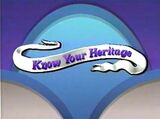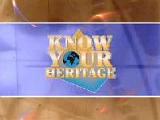(→Trivia) Tags: Visual edit apiedit |
Smartguy1995 (talk | contribs) No edit summary |
||
| (11 intermediate revisions by 6 users not shown) | |||
| Line 1: | Line 1: | ||
| − | {| style="font-family: verdana, sans-serif; padding: 6px; margin: 0 0 1em 1em; font-size: 10px; background-color: #f7f8ff; border:1px solid #8888aa; |
+ | {| width="256" align="right" style="font-family: verdana, sans-serif; padding: 6px; margin: 0 0 1em 1em; font-size: 10px; background-color: #f7f8ff; border:1px solid #8888aa;" border="1" cellspacing="2" cellpadding="2" |
|align="center" colspan=2|'''Hosts''' |
|align="center" colspan=2|'''Hosts''' |
||
|- |
|- |
||
| |
| |
||
| − | Omar McClinton 1987<br />Jeff Coopwood 1990<br />Hosea Sanders 199?-2000<br />John Conrad 2001<br />Dorothy Tucker 2002<br />Greg-Alan Williams 2003, 2005-2010<br />Dwayne Bryant 2004<br /> |
+ | Omar McClinton (1987)<br />Jeff Coopwood (1990)<br />Hosea Sanders (199?-2000)<br />John Conrad (2001)<br />Dorothy Tucker (2002)<br />Greg-Alan Williams (2003, 2005-2010)<br />Dwayne Bryant (2004)<br /> |
|- |
|- |
||
| colspan="2" align="center" |'''Broadcast''' |
| colspan="2" align="center" |'''Broadcast''' |
||
|- |
|- |
||
| − | |[[File:KYH90.JPG|center|160px]]Syndicated (Chicago area) |
+ | |[[File:KYH90.JPG|center|160px]]Syndicated (Chicago area): 1987-200?[[Image:Kyh.jpg|center]]WLS ABC 7: 200?<br />WBBM CBS 2: 200?<br />WPWR UPN/MNT 50: 200?-2007<br />WCIU 26: 2008-2010 |
| − | [[Image:Kyh.jpg|center]]WLS ABC 7 200?<br />WBBM CBS 2 200?<br />WPWR UPN/MNT 50 200?-2007<br />WCIU 26 2008-2010<br /> |
||
|- |
|- |
||
| colspan="2" align="center" |'''Packager''' |
| colspan="2" align="center" |'''Packager''' |
||
| Line 15: | Line 14: | ||
|} |
|} |
||
| − | + | '''''Know Your Heritage''''' was a quiz bowl for Chicago's high schools. This show has questions primarily based on African- American history. It is filmed at the Harold Washington Cultural Center in Chicago's Bronzeville area. |
|
After 28 years, it was expanded to a national quiz bowl for the entire United States with two spinoffs [[Black College Quiz]] and later [[Hispanic College Quiz]]. |
After 28 years, it was expanded to a national quiz bowl for the entire United States with two spinoffs [[Black College Quiz]] and later [[Hispanic College Quiz]]. |
||
==Gameplay== |
==Gameplay== |
||
| − | Two teams consisting of four students |
+ | Two teams consisting of four students (each team from one high school in Chicago) competed in a yearly tournament to win $1,000 college scholarships as well as trips to Walt Disney World as rewards for their knowledge of black history. |
| − | Questions |
+ | Questions were presented in multiple choice format with four possible answers, with point values in varying amounts. The team that rang in first would have the chance to answer it and had to give the letter and answer; giving the letter alone was not acceptable. |
| − | The questions |
+ | The questions ranged from primarily ethnic history, with a few grab-bag categories thrown in. |
| − | Next |
+ | Next was the huddle up round where a question was asked and up to 10 answers were shown and the teams would have one minute to pick which of the answers were correct and were awarded based on number of correct guesses. |
| − | The final round |
+ | The final round consisted of how many points each team was willing to wager. They would do so during the second-to-last commercial break. One player from each team would walk up to the host's podium and the question was presented. They would have a time limit in which to put the answer down; when time expired, both players would close their notebooks (laptops in newer episodes). |
This series is broken into different sections like most quiz bowls. |
This series is broken into different sections like most quiz bowls. |
||
| − | '''"Chicago Challenge" (Introduced 2008)''' - All the high schools |
+ | *'''"Chicago Challenge" (Introduced 2008)''' - All the high schools competed in 10 minute intervals, usually two matches per episode, until 16 teams remained. |
| ⚫ | |||
| ⚫ | |||
| ⚫ | |||
| ⚫ | |||
| ⚫ | |||
| ⚫ | |||
| − | |||
| ⚫ | |||
| − | |||
| ⚫ | |||
| − | |||
| ⚫ | |||
| − | |||
| ⚫ | |||
==Music== |
==Music== |
||
Main (1990) - "Night-Lines" by Dave Grusin<br /> |
Main (1990) - "Night-Lines" by Dave Grusin<br /> |
||
| − | Speed Up Round cue (1990) - "Run Don't Walk (A)" by Richard Myhill (KPM Music)<br> |
+ | Speed Up Round cue (1990) - "Run Don't Walk (A)" by Richard Myhill (KPM Music)<br /> |
Main (2007-2008) - "1 Thing" by Amerie |
Main (2007-2008) - "1 Thing" by Amerie |
||
==Inventor== |
==Inventor== |
||
Omar McClinton & Central City Productions |
Omar McClinton & Central City Productions |
||
| + | |||
| + | ==Rating== |
||
| + | [[File:72px-TV-PG icon svg.png]] |
||
==Spin-Offs== |
==Spin-Offs== |
||
| ⚫ | |||
| − | |||
| − | [[ |
+ | *''[[Hispanic College Quiz]]'' - National tournament for historically hispanic universities |
| − | |||
| ⚫ | |||
==Links== |
==Links== |
||
| Line 67: | Line 63: | ||
*[http://www.youtube.com/watch?v=ToYa6vQrUcs 1990 Semifinals Episode] |
*[http://www.youtube.com/watch?v=ToYa6vQrUcs 1990 Semifinals Episode] |
||
*[http://www.youtube.com/watch?v=dHEaZ75g_rU 1990 Finals Episode] |
*[http://www.youtube.com/watch?v=dHEaZ75g_rU 1990 Finals Episode] |
||
| + | *2007 Episode [https://www.youtube.com/watch?v=UoPfvfX9AW8 Part 1] [https://www.youtube.com/watch?v=sRD_r8FOhkg Part 2] [https://www.youtube.com/watch?v=6ZDq0EUxJD4 Part 3] |
||
| ⚫ | |||
[[Category:Illinois]] |
[[Category:Illinois]] |
||
[[Category:Academic Quiz]] |
[[Category:Academic Quiz]] |
||
[[Category:Themed Quiz]] |
[[Category:Themed Quiz]] |
||
| − | [[Category: |
+ | [[Category:Long-Running]] |
| ⚫ | |||
| + | [[Category:1987 premieres]] |
||
| + | [[Category:2007 endings]] |
||
| + | [[Category:2008 premieres]] |
||
[[Category:2010 endings]] |
[[Category:2010 endings]] |
||
| + | [[Category:1980s shows]] |
||
| + | [[Category:1990s shows]] |
||
| + | [[Category:2000s shows]] |
||
| + | [[Category:2010s shows]] |
||
Revision as of 12:25, 12 July 2020
| Hosts | |
|
Omar McClinton (1987) | |
| Broadcast | |
| Syndicated (Chicago area): 1987-200?WLS ABC 7: 200? WBBM CBS 2: 200? WPWR UPN/MNT 50: 200?-2007 WCIU 26: 2008-2010 | |
| Packager | |
| Central City Productions | |
Know Your Heritage was a quiz bowl for Chicago's high schools. This show has questions primarily based on African- American history. It is filmed at the Harold Washington Cultural Center in Chicago's Bronzeville area.
After 28 years, it was expanded to a national quiz bowl for the entire United States with two spinoffs Black College Quiz and later Hispanic College Quiz.
Gameplay
Two teams consisting of four students (each team from one high school in Chicago) competed in a yearly tournament to win $1,000 college scholarships as well as trips to Walt Disney World as rewards for their knowledge of black history.
Questions were presented in multiple choice format with four possible answers, with point values in varying amounts. The team that rang in first would have the chance to answer it and had to give the letter and answer; giving the letter alone was not acceptable.
The questions ranged from primarily ethnic history, with a few grab-bag categories thrown in.
Next was the huddle up round where a question was asked and up to 10 answers were shown and the teams would have one minute to pick which of the answers were correct and were awarded based on number of correct guesses.
The final round consisted of how many points each team was willing to wager. They would do so during the second-to-last commercial break. One player from each team would walk up to the host's podium and the question was presented. They would have a time limit in which to put the answer down; when time expired, both players would close their notebooks (laptops in newer episodes).
This series is broken into different sections like most quiz bowls.
- "Chicago Challenge" (Introduced 2008) - All the high schools competed in 10 minute intervals, usually two matches per episode, until 16 teams remained.
- "Chicago Survivors" - The 16 high schools competed against each other until eight were left.
- "Chicago's Elite" - Quarterfinals match, in which the remaining eight competed until four winning teams were left.
- "Chicago's Noble Four" - Semifinals match, where the two winning teams advanced to the finals.
- "Who's Who in Chicago" - The finals round where the two winning teams competed for the grand prize stated above.
Special "All Star" episodes aired at the end of each season. Versions included the losing two teams from the final four, students versus faculty from the high school of the winning team, or two teams of Chicago celebrities.
Music
Main (1990) - "Night-Lines" by Dave Grusin
Speed Up Round cue (1990) - "Run Don't Walk (A)" by Richard Myhill (KPM Music)
Main (2007-2008) - "1 Thing" by Amerie
Inventor
Omar McClinton & Central City Productions
Rating
Spin-Offs
- Black College Quiz - National tournament for historically black universities
- Hispanic College Quiz - National tournament for historically hispanic universities

